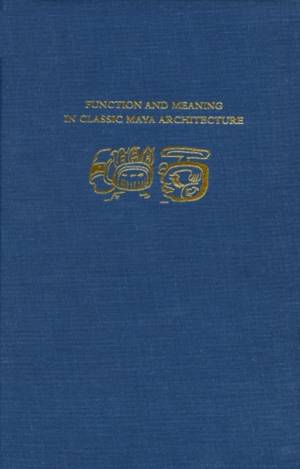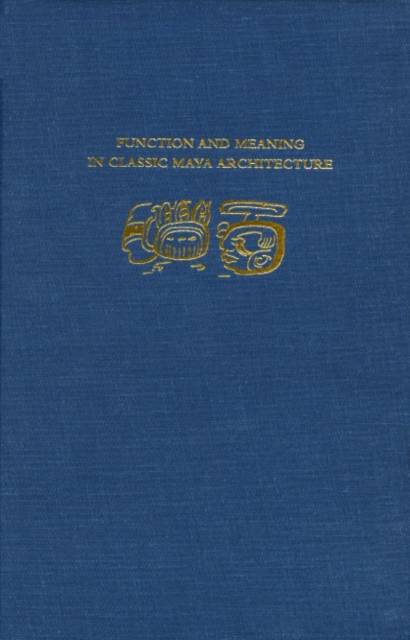
- Retrait gratuit dans votre magasin Club
- 7.000.000 titres dans notre catalogue
- Payer en toute sécurité
- Toujours un magasin près de chez vous
- Retrait gratuit dans votre magasin Club
- 7.000.000 titres dans notre catalogue
- Payer en toute sécurité
- Toujours un magasin près de chez vous
Function and Meaning in Classic Maya Architecture
A Symposium at Dumbarton Oaks, 7th and 8th October 1994
Description
Investigations of Maya architecture have been among the chief vehicles for contemplating a great art tradition, the hieroglyphic writing system, and evaluating issues of comparative sociology. The powerful attraction of Maya architecture as an evocation of lost worlds, as a medium for the carved glyph and idol, and as a yardstick for measuring evolutionary complexity, makes it appropriate that attention be given to the buildings themselves, rather than simply treating them as media for the investigation of other issues, as valuable as these might be. The articles in this volume are of special value and importance in making architecture itself the focus of attention. At the same time that they give appropriate attention to the great architectural achievements of the Maya, they do not ignore the often evanescent residences of commoners. Rather than privileging cross-cultural comparisons or the anthropology of prehistoric peoples, however, structures remain at the forefront. In this, we reaffirm Maya architecture as one of the world's great building traditions, allow for meaningful interdisciplinary exchange between archaeology, art history, and anthropology, and provide new ways of appreciating Maya culture, from a unique perspective.
The contributions presented here will surely mark a significant stage in the study of Maya architecture and the society that built it. These articles represent the advances that have been achieved in our understandings of the past, point toward avenues for further studies, and note the distance we have yet to travel in fully appreciating and understanding this ancient American culture and its material remains.Spécifications
Parties prenantes
- Editeur:
Contenu
- Nombre de pages :
- 562
- Langue:
- Anglais
- Collection :
Caractéristiques
- EAN:
- 9780884022541
- Date de parution :
- 01-01-98
- Format:
- Livre relié
- Format numérique:
- Genaaid
- Dimensions :
- 163 mm x 233 mm
- Poids :
- 1233 g






